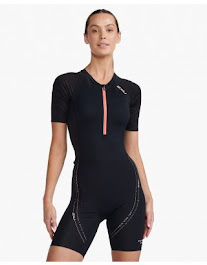Teaching swimming lessons to your little kid is a great way of increasing their confidence, skill, and comfort with water. It is a lot of fun and a superb activity for physical health. However playing in the water may be dangerous, especially drowning, which may be the cause of death among children. No course is guaranteed to drown-proof a child but keeping some safety tips will always help you. Learning swimming can give your child skills that can last for a lifetime, and swimming is essential, everyone should learn this for the safety of their life.
Always research more about the swimming course before enrolling your child. The course should focus on swimming and water survival competency skills and choose the best
swimming wetsuit for comfort that will help them to learn faster. Also, professionals should be teaching swimming lessons for maximum safety. Water should be warm and clean, level of water should be according to kids' age group.
Here are some tips to teach swimming lessons to your child whether you are enrolling them for the course, or teaching them personally in a backyard pool.
1 To 2 Years Old
At this stage, simply introduce your child to the water, play in the pool, or join a class with your kid that focuses on fun water activities and getting comfortable with water instead of teaching swimming.
Safety Tips
Keep your baby in your arms
Beware of all water hazards, including inflatable baby pools, buckets, toilets, and tubs.
Dress them in a swim diaper.
2 To 3 Years Old
In the swimming program, play fun games with your child, encourage them to move their arms like throwing the ball in the pool, and guide them on how to reach it. Teach them to kick their legs, and float. Show them to bubble in the water so they can be comfortable with the inside water. At this stage, they may be able to do with your help and encouragement.
Safety Tips
Constantly be with your child, even if he/she is totally comfortable in the water.
Do not keep them in water for a longer time, it may cause cough, cold, and fever.
Always dress them up properly for comfortable swimming.
4 To 5 Years Old
Now that your child is confident enough to be in the water and swim independently, you can admit them for a formal swimming course. If they are still not comfortable in the water, choose a course that will help them to get comfortable in the water.
On surface water, your child should learn how to float alone, dip their head under the water for 5 to 10 seconds, swim through the water, reach an exit point, and use kicking and arm movements. Their swimming class should focus on both water and safety skills.
Tips
You may not need to hold your child at this stage, but always supervise them by being in the water.
Do not force your child to do the activity if they don't want to, they may be moody and stubborn always be patient.
6 Years Old and Up
An older child can hold their breath for longer periods, and swim underwater. Many children at this age can jump into the water and resurface on their own. They can start developing all swimming skills, including backstroke and breast. Their constancy will allow them to swim longer distances. However, always remember every child is different their learning speed may vary, while some 6-year-olds are swimming independently, others may take to a little longer to master this skill.
Safety Tips
You should watch all the activities of your child, even a good swimmer can drown.
Make it a rule and do not allow them to swim alone, but only with an adult present, and encourage them to always swim with a companion.
Teach them to dive when an instructor is watching and the water is deep.
Additionally, parents should always pay attention to their children's physical and emotional abilities and their comfort and limitation levels before starting the lesson. If you see they are not comfortable with independent swimming then do not force them and give some to your child.




Comments
Post a Comment